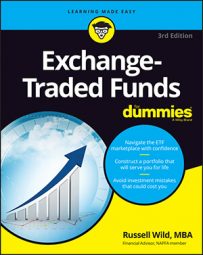The United States Oil Fund (USO) opened on the American Stock Exchange on April 10, 2006. Even though the fund is technically not an ETF but a very close cousin called a commodity pool, that date marks a sort of end to the Age of Innocence for ETFs. The United States Oil Fund, as official as that sounds, is run by a group called Victoria Bay Asset Management.
Don’t mistake this fund for something like the Vanguard Energy ETF (VDE) or the Energy Select Sector SPDR (XLE) funds, both of which invest in oil companies like Exxon Mobil Corp. and Chevron.
Don’t mistake this fund for something like the precious metal commodity funds. Victoria Bay, wherever that is, is not filled with oil. Whereas Barclays and State Street maintain vaults filled with gold and silver, Victoria Bay deals in paper: futures contracts, to be exact.
In other words, this company uses your money to speculate on tomorrow’s price of oil.
Oily business
If you buy into USO and the price of oil escalates, you stand to make money. But is there reason to believe that the price of oil will always (or even usually) escalate? It has certainly gone up and down over the years, as have oil futures.
As fate would have it, the promise of the United States Oil Fund has turned out to be nothing like the reality. Consider this: The price of an actual barrel of oil rose from about $40 in January 2009 to nearly $100 in June 2011. In the same time period, USO’s share price went from about $35 to $38 — not much of an increase.
The famed economist John Maynard Keynes in 1930 theorized that commodity futures, over time, will offer compensation above and beyond any rise in the price of a commodity. He speculated that speculators will somehow be rewarded for taking the risk of future price uncertainty.
Keynes’s theory was very controversial for very many years, and in the past few years it has come to look as if Keynes was wrong. Of course, he didn’t know that so many investors, largely thanks to ETFs such as USO, were going to pile into the commodity-futures arena. Such piling on has resulted in some ugly discrepancies between commodity future prices and the price of the actual commodity.
But even if Keynes were right, and even if the futures market more accurately tracked the price of the actual commodity (AKA the “spot price”), why pick a single commodity to invest in? Why not diversify your risks with a variety of commodities? A good number of ETFs attempt to do that, and more are on the way.
No experience necessary
The issuer of the USO fund is not a major investment bank. Victoria Bay Asset Management, LLC is “a wholly-owned subsidiary of Wainwright Holdings, Inc., a Delaware Corporation . . . that also owns an insurance company organized under Bermuda law.” The fund’s prospectus, especially the part about the management of Victoria Bay, makes for very interesting reading.
Two of the top people running the fund also manage a mutual fund called Ameristock, and a third, Malcolm R. Fobes III (no relation to Malcolm Forbes), is the founder of the Berkshire Focus Fund (no relation to the fabulously successful Berkshire Hathaway.) Both Ameristock and Berkshire Focus (both with Morningstar one-star ratings) have track records that would make most people cringe.
But the part of the prospectus that really raises an eyebrow is where it explains that “the managing and directing of day-to-day activities and affairs [of the fund] relies heavily on . . . Mr. John Love,” who, we later learn, is not only employed by Ameristock but also “holds a BFA in cinema-television from the University of Southern California. Mr. Love does not have any experience running a commodity pool.” His experience: “from December 2000 to February 2001, Mr. Love was employed by Digital Boardwalk, Inc.”
Even if John Maynard Keynes were right, no one running this fund seems nearly as smart as J.M. Keynes — or Jed Clampett.

